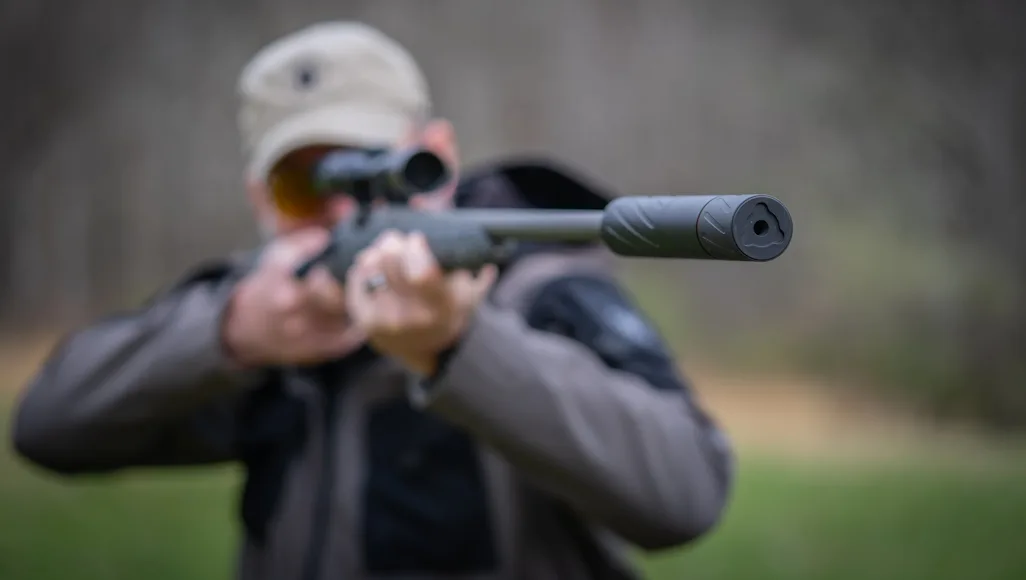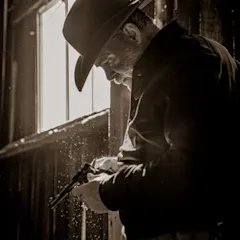We may earn revenue from the products available on this page and participate in affiliate programs. Learn more ›
It used to be rare to see a suppressor at the shooting range, and you almost never saw one while hunting. Times have changed. Not only have suppressors become very common, purchasing a suppressor is now easier. After learning how to buy a suppressor, you’ll realize the most difficult parts of buying a suppressor are coming up with the money and waiting. In fact, because of the Internet and a smart guy from South Dakota, if you live in a suppressor-legal state, you can purchase a suppressor and never leave your house.
How to Buy a Suppressor: Table of Contents
Suppressor Facts
Individual or Trust?
Buying a Suppressor the Old Way
Buying a Suppressor the Easy Way
Suppressor Facts
Some shooters don’t fully understand suppressors because they believe everything their buddy tells them, everything they read on the Internet, or because they’ve been watching too much television. So here are some suppressor facts that are good to know:
A suppressor on a firearm is very similar to a muffler on a car. It is a noise suppression device.
You must be 21 years old, legally allowed to own a firearm, and be able to pass a BATFE background check to purchase a suppressor from a dealer.
As of this writing, you cannot legally own a suppressor in the following states: California, Delaware, Hawaii, Illinois, Massachusetts, New Jersey, New York, and Rhode Island.
Suppressors substantially reduce—generally by about 30 dB—the potential for hearing damage.
OSHA suggests that exposure to impulsive or impact noise should not exceed 140 dB. On most firearms, a good suppressor reduces the sound below that level.
Suppressors do not completely eliminate the need for hearing protection.
Suppressors reduce recoil, partly because of the weight they add to the firearm, and partly because they briefly trap and disperse the gas that propels the bullet.
Suppressors do not make firearms silent. In most cases, they reduce the sound to hearing-safe levels. However, with a suppressor and subsonic ammunition, the sound reduction can be substantial.
One suppressor can be used on multiple firearms if the caliber of the firearm does not exceed the caliber of the suppressor.
You can legally make your own suppressor, but you must still comply with the legal process, and you must still pay the $200 tax.
How to Buy a Suppressor

Individual or Trust?
Before getting into how to buy a suppressor, you need to understand the difference in types of ownership. You can own a suppressor either as an individual or as a trust. As an individual owner, you can use the suppressor and you can let others use the suppressor, but you must be with anyone else anytime they have the suppressor or are using it. If you don’t have any friends—and some of you don’t, I’ve seen your Facebook profiles—individual ownership is fine. Well, except when you die, because then your estate is left in possession of an unregistered NFA item. That’s a problem for whoever executes your will.
If you purchase a suppressor as a trust, any co-trustee can be in possession of and use the suppressor just as you would. Also, if you’re smart enough to designate a “beneficiary” then that person simply assumes the trust when you go to the great shooting range in the sky. You can also purchase a suppressor as a corporation and use of the suppressor can extend to employees. However, if the corporation is dissolved you run into the same situation you have with individual ownership; there’s a suppressor without an owner, and the ATF doesn’t like that.
Buying a Suppressor the Old Way
The traditional method of buying a suppressor is to go to a dealer with a Class 3 Federal Firearms License. They can sell you a suppressor, and most of them will help you with the paperwork, photograph, and fingerprints. You’ll have to pay the dealer for the suppressor, you’ll have to pay a $200 tax to the Federal Government, and you’ll most likely have to pay the dealer a transfer fee of between $25 to $100. Once your paperwork, photo, and fingerprints have been submitted with your $200 tax, you’ll have to wait until the ATF gets around to approving everything before you can take possession. This generally takes between six and nine months but can happen in as soon as three months or take as long as almost a year.
There are some advantages of buying a suppressor this way. Most dealers may have suppressors in stock that you can look at and maybe even try before you buy. You also might be buying a suppressor from an individual and need the dealer to handle everything. Some dealers will even assist in helping you establish a trust. Otherwise, you’re going to have to do that on your own with an attorney, and I’ve yet to meet a lawyer that will do anything important for free.
Buying a Suppressor the Easy Way
In 2019 Dakota Silencer became Silencer Central and they’re now licensed to sell suppressors in any of the 42 states where you can legally own one. Silencer Central has revolutionized buying a suppressor. You call them up and talk and an expert who will help you select the best suppressor for your needs. Then they’ll help you electronically complete the necessary paperwork, and you’ll pay for the suppressor and the $200 tax. Silencer Central even gives you the option of making four payments instead of paying all at once. Next, you’ll receive a fingerprint kit with instructions—it costs $10—and you’ll complete it and return it with a digital photo of your pretty little self. Then, you wait. Once approved, you’ll electronically fill out a Form 4473—this is the same form you complete to purchase a firearm—and in seven days Silencer Central will ship the suppressor to your doorstep.
Read Next: How Does a Silencer Work?
Silencer Central will even set you up with a trust for free. Silencer Central also manages your trust, and once approved you can add the names of the other humans—co-trustees or responsible persons—you want to be able to use your suppressor at no cost. You don’t have to pay an attorney and the co-trustees do not have to submit a photo or fingerprints. This trust can be used by you to purchase other NFA items and Silencer Central can help you modify the trust as laws might change.
I recently extensively tested Silencer Central’s Banish 30 suppressor, and it was the quietest suppressor I’ve ever used on a 308 Winchester. I’m buying one, and I’m also buying a Banish 45 suppressor that I can use on pistols and for rimfire rifles and pistols. Silencer Central is going to set up my trust and as soon as the suppressors are in hand, I’ll update you on how the process went and how long it took.


